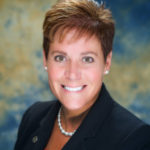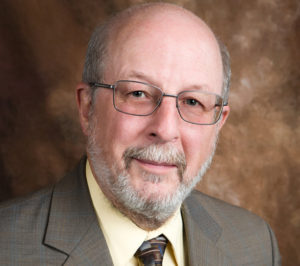Duties and responsibilities are many including preparing budget for Verde Campus/Sedona Center; must be willing to live in the Verde Valley; shows dramatic shift away from total control by Prescott
 There has not been a decision as yet about who might become the new Verde Campus/Sedona Center Dean. The search began in late fall 2019 and there are rumors about possible finalists. However, there have been no official announcements about the position.
There has not been a decision as yet about who might become the new Verde Campus/Sedona Center Dean. The search began in late fall 2019 and there are rumors about possible finalists. However, there have been no official announcements about the position.
For the first time, and a major change, is that the new Dean will be required to live in the Verde Valley. Another change requires that the new Dean be responsible for preparing a budget for the Verde Campus and Sedona Center. These changes signal the willingness of the new Administration to move away from the total control that has been exercised by Prescott over the Verde Valley for the past several decades.
The list of duties and responsibilities for a dean candidate were listed in the announcement of the position by the College. What follows below is a portion of that job opening announcement as found on the College’s job opening web site (emphasis has been added).
The following are examples of typical duties that may be assigned to positions in this job family. It does not imply that all positions within the job family perform all the duties listed, nor does it necessarily list all possible duties that may be assigned. Other duties may be assigned. Plans, directs, evaluates, and oversees administration of academic affairs for the Verde Valley campus and Sedona center by performing duties personally. Participates on district committees on various issues related to academics, instruction, curriculum, and faculty affairs.
Directs the planning, implementation, and evaluation of instructional programs based on the Verde Valley campus and Sedona center. Directs and coordinates activities of instructional managers, including program directors/coordinators, and other Plans and implements professional development activities in conjunction with the other academic deans for full-time and adjunct faculty in the department/division.
Supervises the preparation of catalog material for programs on the Verde Valley campus and Sedona center. Works with the Director of Scheduling & Early College Partnerships to determine scheduling of courses and recommends implementation of additional courses for the Verde Valley campus and Sedona center. Communicates and collaborates on a regular basis with Director of Student Affairs & Campus Operations of the Verde Valley campus to ensure a campus atmosphere of consistency and collaboration.
Works to maintain a college wide consistency of student-facing processes and procedures for a seamless experience for students college wide, regardless of the location. Assists in the selection, improvement, and evaluation of instructional faculty; review of credentials, screening of applications, and formulation of recommendations for final interviews with the Vice President of Instruction.
Maintains current knowledge of, and interprets and applies Federal, State, and related legislation. Revises program administration to comply with regulations. Works with the Office of Community Relations to attend community events and meetings in the Verde Valley and Sedona on behalf of the college.
Responsible for budget preparation, monitoring, verification, and reconciliation of expenditure of funds for academic programs on the Verde Valley campus and Sedona center. Minimum Expectations & Requirements Master’s degree Supervisory experience Instructional leadership skills Ability to adhere to deadlines Demonstrated ability to work as a team member. Regular attendance is an essential job function as it demonstrates dependability towards the performance of job duties.
Must live in the Verde Valley.
Knowledge of Open Educational Resources, Online Education and Instructional Design Preferred Skills & Abilities Academic Administrative experience in class schedule building, budget management and problem-solving and conflict resolution.
Professional experience in a community college/higher education work environment. Experience working with Open Educational Resources, Online Education and Instructional Design Essential Functions. To perform this job successfully, an individual must be able to perform each essential duty satisfactorily.






 The Contract with the Phoenix Law Firm of Osborn Maledon is up for review at the Governing Board meeting on the Verde Campus this Tuesday, October 8. Osborn Maledon is the law firm that represents only the Governing Board.
The Contract with the Phoenix Law Firm of Osborn Maledon is up for review at the Governing Board meeting on the Verde Campus this Tuesday, October 8. Osborn Maledon is the law firm that represents only the Governing Board.
 There was a lot of discussion during Monday’s Board retreat about the ability of Governing Board members to obtain information of any kind from the College faculty and staff. Governing Board member Paul Chevalier argued there should be greater freedom among Board members to obtain information from sources other than the president. His view received at best a mild reception.
There was a lot of discussion during Monday’s Board retreat about the ability of Governing Board members to obtain information of any kind from the College faculty and staff. Governing Board member Paul Chevalier argued there should be greater freedom among Board members to obtain information from sources other than the president. His view received at best a mild reception.
 If you want a real headache, consider the problem faced by the new Community College President, Lisa Rhine, to try and find ways to balance College cultural activities, programs and events between the west side of the County (Prescott/Prescott Valley and more) and the east side of the County (Clarkdale, Cottonwood, Camp Verde, Sedona and more). Historically, the imbalance has drawn only minimal concern from the College. Dr. Rhine is facing the issue head-on.
If you want a real headache, consider the problem faced by the new Community College President, Lisa Rhine, to try and find ways to balance College cultural activities, programs and events between the west side of the County (Prescott/Prescott Valley and more) and the east side of the County (Clarkdale, Cottonwood, Camp Verde, Sedona and more). Historically, the imbalance has drawn only minimal concern from the College. Dr. Rhine is facing the issue head-on.